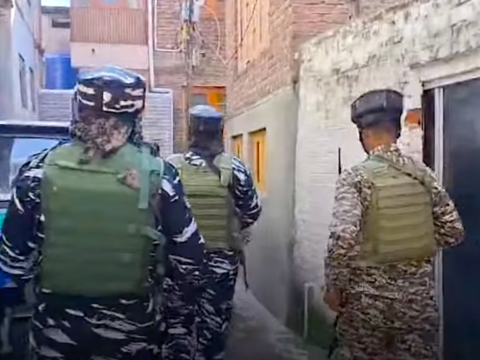SACRAMENTO (Diya TV) — In recent times, the United States has become a battleground for a contentious debate surrounding anti-caste discrimination bills, particularly targeting the American Hindu community. The controversy began when Seattle became the first city in the US to enact a law explicitly banning caste discrimination, and subsequently, a similar bill was introduced in California. However, California Governor Gavin Newsom vetoed the bill, arguing that the US constitution already covered bans on discrimination based on ancestry.
This wave of legislation has sparked intense reactions from various quarters, with American Hindu organizations claiming unfair targeting and caste profiling, while many Dalit voices in the US have raised concerns about the alleged discrimination faced by American Hindus.
Adding a layer of complexity to the discourse is a recent report titled “Weaponization of Caste in America” by Dr. Salvatore Babones, an Associate Professor at the University of Sydney. The report contends that caste has been weaponized in the American context to fuel hostility toward Bharat and the Bharatiya diaspora. It suggests that the movement to ban caste discrimination in the US is sponsored by a coalition of Muslim, Dalit, and Khalistani groups, aiming to open an anti-Bharat front.
Dr. Babones’s report makes a crucial distinction between the terms “Dalits” and “Scheduled Castes,” emphasizing that while “Dalit” is a politically and religiously loaded term in the South Asian context, “Scheduled Castes” is a civil administrative category in Bharat. The report argues against conflating the politico-religious term “Dalit” with the civil category “caste.”
Furthermore, the report challenges the conditions of Dalits in the US, asserting that their situation cannot be equated with that of Dalits in Bharat. While Dalits in Bharat face significant disadvantages in education and employment, the report claims that American Dalits constitute a relatively privileged group engaged in white-collar jobs and higher education.
The methodology of the survey conducted by Equality Labs, an organization often cited by anti-caste discrimination bill sponsors, comes under scrutiny in the report. It highlights biases in the distribution of the survey questionnaire, noting that it was mainly circulated through activist networks, potentially leading to an unrepresentative sample.
Dr. Babones’s report concludes that the caste narrative in the US is a pseudo front for anti-Bharat forces to unite. It argues that the true motive is to exert pressure on Bharat regarding various issues, including Kashmir and Khalistan separatism, by creating a negative perception of Hindus and their faith.
In this broader context, the controversy over caste discrimination bills in the US appears to be part of a larger geopolitical game, with implications for the Bharatiya diaspora and potential repercussions on international relations. As the debate unfolds, it remains essential to critically examine the motivations, methodologies, and implications of such legislation on the diverse communities involved.



